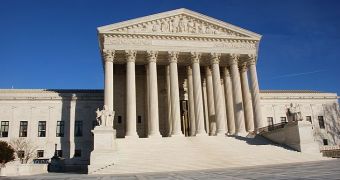The US Supreme Court is chickening out and taking a step back from the entire NSA scandal. Rather than making a final decision on whether the bulk telephone metadata surveillance program is constitutional, the Supreme Court has decided to decline the case.
Instead, the Court has now left lower courts to contradict each other over the legality of this particular NSA surveillance program. One court, for instance, has described the metadata program as an “almost-Orwellian” effort.
In fact, this particular petition brought to the Supreme Court concerns precisely a decision given out by US District Judge Richard Leon, who also wrote that in his opinion, America’s founding fathers would be aghast at the spying practices.
Political activist Larry Klayman skipped the Appeal Court and went straight to the Supreme Court, saying that this is a case of imperative public importance, so it should immediately get the attention of the highest court. It should be mentioned that the Supreme Court doesn’t normally pick out cases before they go to the Federal Appeal Court.
The decision to ignore this particular case comes just before the White House is expected to come up with a series of more drastic reforms for the National Security Agency. So far, these reforms have extended to restricting the NSA’s access to the records and having a third party hold them rather than the agency itself, as if that will fix the issue generated by the initial collection.
Most people don’t really expect big changes in the way the United States conducts surveillance considering its weak response thus far and clear unwillingness to make any real changes.
The future of the telephony metadata collection program will most likely be decided by politicians rather than judges. There are several important bills awaiting in Congress, including some that will considerably cut down on NSA’s surveillance powers.
The intelligence community has been lobbying the Congress not to pass the bill, but social pressure might eventually pay off and the bills could still pass.
One of these bills has been written by Jim Sensenbrenner, the same man who wrote the Patriot Act, which the NSA uses to hide behind whenever it explains why a certain surveillance program is legal. Sensenbrenner now wants to set things right and make sure there’s no loophole to be used by the intelligence agencies.

 14 DAY TRIAL //
14 DAY TRIAL //